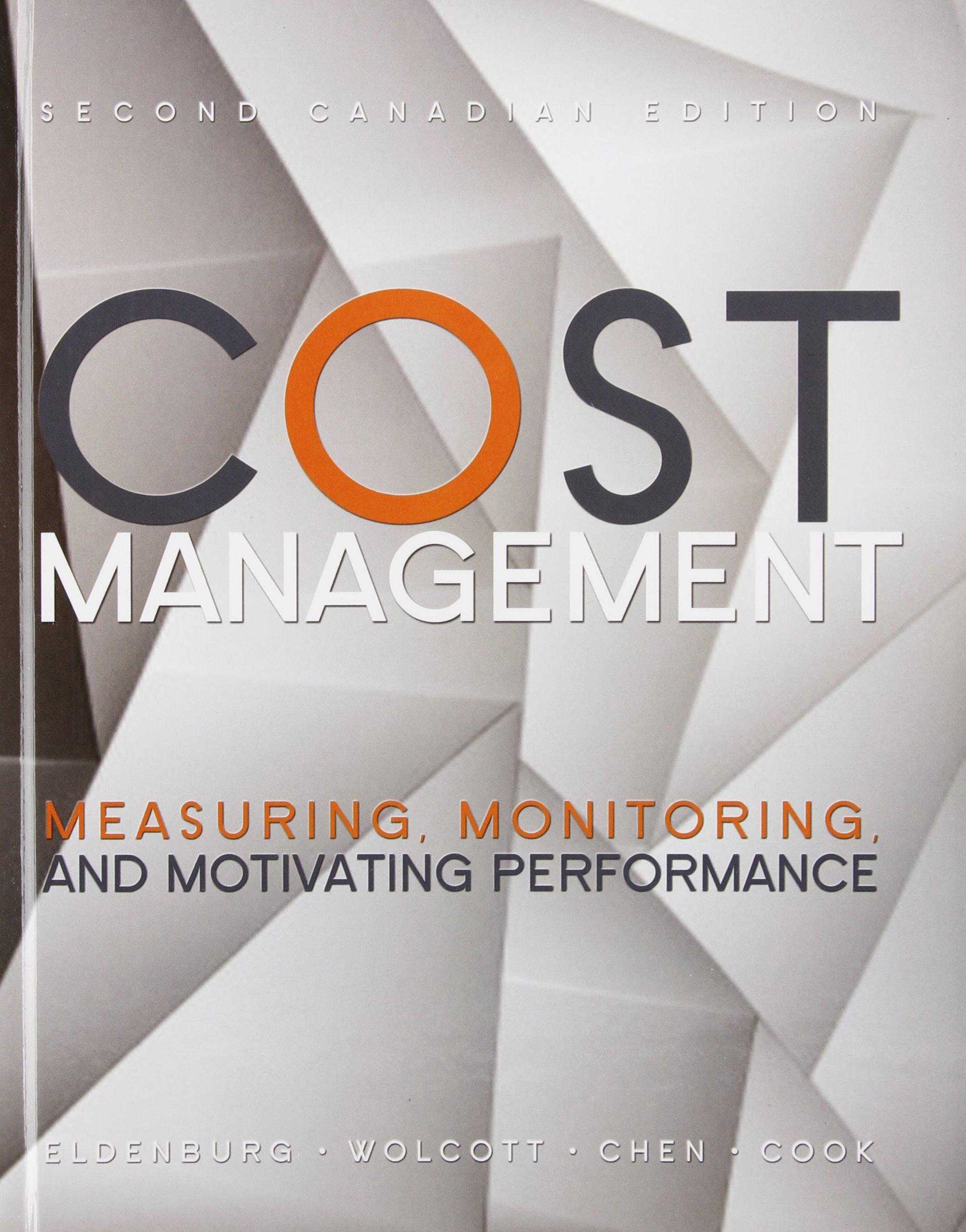As of 2007, coffee-drinking Canadians drank an average of approximately 2.6 cups a day, which adds up
Question:
Fair trade is not just about coffee. The concept began in the mid-1940s, with craft items made by artisans in developing countries, and has spread to include coffee, tea, chocolate, bananas, and other products. The basic idea of fair trade is to pay primary producers a "fair price" for their products. Fair trade products must meet a specific set of criteria, and compliance is independently verified.
Most of the coffee sold in Canada and world-wide is not labeled "fair trade." Most coffee is produced in developing, low-income countries. Coffee farmers typically live in what Canadians would classify as poverty conditions.
Coffee producers are paid approximately $0.54 to $0.60 per pound of coffee beans. Producers' costs are estimated to be $0.60 to $0.90 per pound of coffee beans. Under fair trade agreements, producers are paid a minimum of $1.26 per pound. Fair trade status requires that producers conform to specific conditions pertaining to environmental conditions, labour practices, education, and income distribution. Fair trade farms must be democratically run cooperatives of small to medium size. The intention is that the role of the "middleman" be eliminated or greatly reduced. Under fair trade agreements, the communities of the producers also receive benefits such as medical and education facilities, educational materials, and support for other community projects.
Coffee bearing the "fair trade" label sells for $1 or more extra per pound retail.
If more money goes to the producers, how can fair trade be controversial? Jose Felix Centeno Castillo represents farming cooperative in Nicaragua. His coffee beans do not bear the "fair trade" label. Yet, his cooperative is paid $1.61 per pound for their beans. He points out that the "fair trade" label comes at a cost-a cost that would erode his cooperative's earnings by hundreds of dollars per year. That is money the farmers need to feed and educate their families. Castillo's group is not alone. Other producers meet or exceed the environmental sustainability, fair labour practices, and education requirements of fair trade but do not apply for or cannot afford the approximate $0.10 per pound for fair trade status. Large company-owned coffee farms are excluded from fair trade status even if they adhere to the standards of fair trade simply because they are not democratically run cooperatives. A number of small, Canadian coffee roasters and retailers, such as Just Us! Coffee Roaster Co-Op, carry exclusively fair trade products. The largest Canadian-based coffee roast-retailer, Timothy's World Coffee, now carries a number of "fair trade" labeled coffees. Even the large canned coffee producer Procter & Gamble has a line of fair trade coffee that it sells under the Millstone label. After a number of rallies and protests across Canada and the United
States, Starbucks has started to offer fair trade coffees. Other roasters and retailers, such as JBR Gourmet Foods and Seattle's Best Coffee, have developed incentive systems that pay higher prices to farmers for higher-quality coffee beans, while providing additional support for community service projects in the growers' local communities. Many of these brands do not carry the "fair trade" label, and not all of these farmers' co-ops pay for a "fair trade" label.
REQUIRED
A. Describe whether and how corporate social responsibility (i.e., business practices related to human rights, labour standards, and the environment) affects your decisions as a consumer.
B. Is it possible for you to know the conditions under which the products you purchase are produced? Why or why not?
C. Is it possible for managers of companies such as Timothy's, Starbucks, or Procter & Gamble to know with certainty that their outsource partners comply with agreed-upon working conditions? Why or why not?
D. What does it mean for coffee roasters and retailers to include compliance monitoring costs in their purchasing decision processes?
E. Identify and explain four measures that a coffee roaster or retailer could use to monitor worker conditions at suppliers' farms. For each measure, describe how the company might collect reliable data.
F. How should coffee roasters and retailers weigh corporate social responsibility and profits when deciding whether or how to outsource manufacturing? Describe the values you use in drawing your conclusions
Fantastic news! We've Found the answer you've been seeking!
Step by Step Answer:
Related Book For 

Cost Management Measuring Monitoring And Motivating Performance
ISBN: 9781118168875
2nd Canadian Edition
Authors: Leslie G. Eldenburg, Susan Wolcott, Liang Hsuan Chen, Gail Cook
Question Posted:





